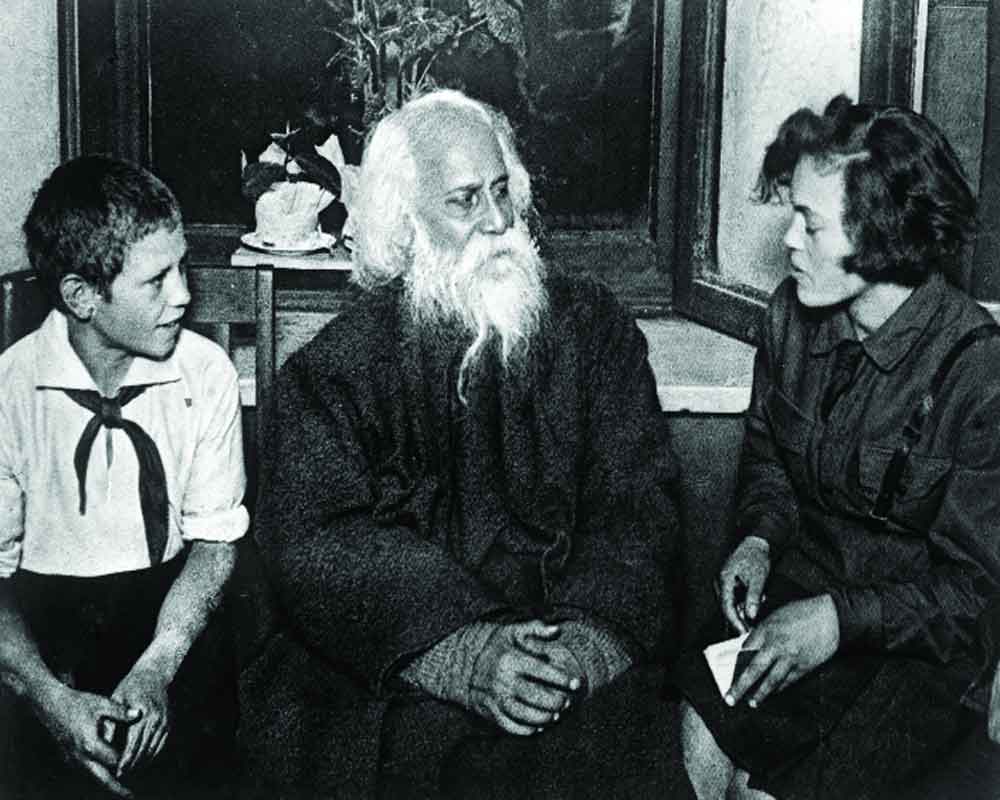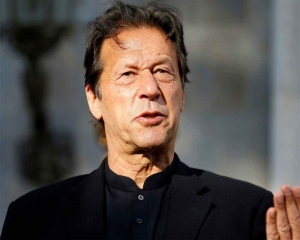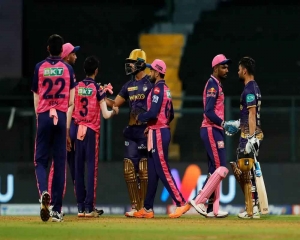Rabindranath Tagore, the polymathic Nobel Laureate from Bengal, is celebrated not only for his literary brilliance but also for his visionary ideas on education
Rabindranath Tagore (May 7, 1861 to August 7, 1941), the polymathic Nobel Laureate from Bengal, is renowned not only for his literary brilliance but also for his progressive ideas on education. His philosophy of education, rooted in the principles of creativity, freedom, and humanism, continues to resonate with contemporary educational discourse. In today's rapidly changing world, where traditional educational paradigms are being challenged and redefined, Tagore's insights offer valuable perspectives for reimagining education in a manner that fosters holistic development and meaningful engagement with the world.
At the heart of Tagore's educational philosophy is the belief in the innate creativity and potential of every individual. He envisioned education as a process of nurturing this inherent creativity rather than imposing predetermined knowledge. In his seminal work, "Siksha: Herok Ek Jibon" (Education: A Continuum of Life), Tagore emphasized the importance of cultivating curiosity, imagination, and critical thinking skills in learners. He advocated for an education system that encourages students to explore, question, and construct their understanding of the world, rather than passively receiving information.
Further, central to Tagore's philosophy of education is the concept of "Shantiniketan," or the abode of peace - and later Sriniketan - which he established as an experimental educational institution in rural Bengal. Shantiniketan epitomized Tagore's holistic educational philosophy, integrating intellectual, artistic, and spiritual facets of human life. Education transcended traditional confines, embracing nature, arts, and community involvement. Tagore emphasized fostering reverence for nature, aesthetic sensibility, and interconnectedness with all life. He advocated for intellectual development through imagination, free thought, and perpetual curiosity. This personalized approach prioritized holistic growth, including physical development through exercises, yoga, and sports, echoing Tagore's belief: "The highest education is that which does not merely give us information but makes our life in harmony with all existence."
According to Gurudev Rabindranath Tagore, "A teacher can never truly teach, unless he is still learning himself. A lamp can never light another lamp, unless it continues to burn its own flame". In his essay 'Ashramer Shiksha' (Ashram's Teaching), Tagore extolled the virtues of patience in teaching, advocating that only those imbued with affection for their students deserve the mantle of a teacher. He rejected authoritarian teaching methods, viewing them as indicative of governance inadequacy. K M O'Connell (University of Toronto, Canada) had written that Rabindranath Tagore stands with the pioneering educators, like, Rousseau, Pestalozzi, Froebel, Montessori, and Dewey Malcolm Knowles, who have striven to create non-authoritarian learning systems appropriate to the surroundings.
Furthermore, Tagore's educational philosophy emphasizes fostering a love for humanity and advancing universal brotherhood through recognizing the interconnectedness of all beings and promoting empathy across cultures. Central to his approach is establishing harmony between individuals, nature, and the divine. Tagore advocates for freedom in education to unlock individuals' inherent potential and stresses the significance of moral and spiritual development alongside academic learning. His vision aims at cultivating well-rounded individuals capable of selfless service and social integration, ultimately contributing to a conscientious and harmonious society.
In today's context, characterized by rapid technological advancements, globalization, and environmental challenges, Tagore's emphasis on holistic education is more relevant than ever. The prevailing thought on standardized testing and rote memorization (read learning) often stifles creativity and critical thinking, leaving students ill-prepared for the complexities of the modern world. Tagore's philosophy, instead, calls for a shift towards a more student-centered, inquiry-based approach to learning that empowers learners to navigate uncertainty, think critically, and adapt to change.
Tagore's educational philosophy, as elucidated in his essay "The Centre of Indian Culture," emphasizes the imperative for education to reflect and engage with the socio-cultural milieu in which it operates, asserting that genuine education must be attuned to its contextual realities to foster healthy growth.
This sentiment resonates in Sunil Banga's (Lancaster University Management School) analysis - in his paper "The global relevance of Tagore's cosmopolitan educational philosophy for social justice in a post-Westphalian world" published in Journal of Philosophy of Education (August 2023, Oxford) - which underscores Tagore's cosmopolitan approach to education as a potent instrument for social justice and equity in today's world. Banga highlights Tagore's commitment to societal transformation through education, evident in his advocacy for women's empowerment, condemnation of oppression, and advocacy for India's independence (read freedom). Despite emerging from the colonial era, Tagore's philosophy remains pertinent, particularly his emphasis on education as a catalyst for moral and social development, aiming towards societal harmony and integration to address contemporary global challenges.
Moreover, Tagore's emphasis on the integration of arts, music, and literature into the curriculum offers a counterbalance to the narrow focus on STEM (Science, Technology, Engineering, and Mathematics) education prevalent in many educational systems today. Arts play a crucial role in fostering creativity, empathy, and emotional intelligence, which are essential for navigating the complexities of human relationships and societal challenges.
Sunil Banga underscores Tagore's educational paradigm as an early advocate of global interconnectedness. Tagore posited that education's primary objective was the attainment of self-realization, which he termed 'Atma Shakti,' wherein individuals harmonize with nature and society. Drawing from Hindu literature, Tagore envisions a 'universal man' embodying faith in universalism and humanity. He further advocates for personality development through arts and music, leading to a transcendent understanding of human nature. He contends that humans, upon achieving self-realization, unite with 'God' or 'Manav Brahma,' thereby becoming the 'complete man' and 'soul.'
Rabindranath Tagore's educational philosophy underscores the integral role of education in fostering connections between individuals and humanity while promoting holistic development.
In essence, at the heart of Tagore's vision of cosmopolitan education is the idea of freedom - freedom to engage critically with traditional values and beliefs; and freedom to imagine citizenship in a globalized world, that enables an exploration and negotiation of multiple allegiances in sympathy with others. His notion of freedom in education emphasizes linking nature, society, and learners' experiences. He advocates for learning in natural environments to nourish body and soul, prioritize creativity, and engage critically with traditional values and beliefs.
Rabindranath Tagore's philosophy of education provides a compelling framework for reimagining education in the 21st century. His emphasis on creativity, freedom, holistic development, and social engagement offers valuable insights for addressing the multifaceted challenges of today's world.
By embracing Tagore's vision, educators can create learning environments that empower students to become compassionate, critical thinkers capable of shaping a more just, sustainable, and humane society and boosting student's morale.
On the occasion of Gurudev Rabindranath Tagore's 163rd Birth Anniversary, we may well reflect on his philosophy advocating for an education that transcends mere impartation of knowledge, rather instills a profound harmony with all existence. Revisiting Tagore's principles may serve as a guiding light for Indian educational institutions in this globalised age.
(The writer is Programme Executive, Gandhi Smriti and Darshan Samiti; views are personal)


























